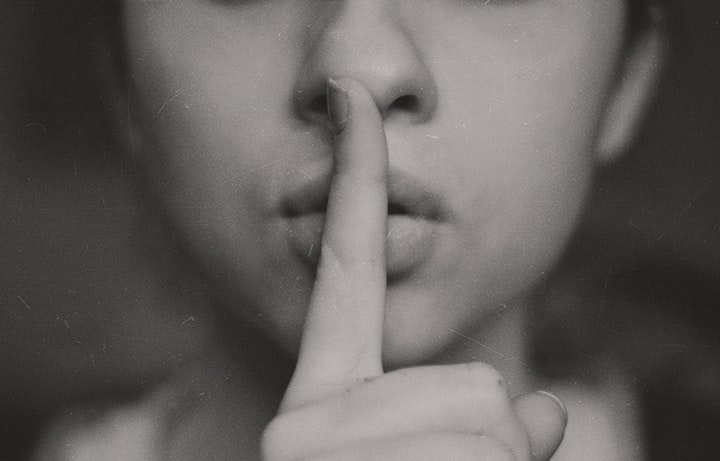
Recently I wrote an article about my experience with a toxic therapist. She was my first ever therapist. The first shocking thing she did was to pick up her mobile phone while I was in a vulnerable state and crying my eyes out. She was also dismissive and authoritarian about goal setting for the upcoming sessions.

Luckily, I was able to spot the warning signs in the first session itself. Since she was a college counselor who was being provided for free by the counseling center, I stopped visiting her afterward.
Sometime later, in my conversation with one of my classmates, she told me that she visited the same counselor for a few months before she even realized that the counselor was engaging in several unethical behaviors.

She kept on giving the counselor the benefit of doubt until it became too explicit to ignore.
This made me wonder about how many people actually continue to visit terrible therapists because they do not know about required ethical behavior in the profession.

Based on my experience as a trainee psychologist, and my last semester‘s paper on counseling ethics, I have decided to detail 6 warning signs that a therapist is engaging in unethical behavior.
#1: They Add You on Their Personal Social Media

The relationship between a client and the therapist is a professional alliance. The aim purpose of this is to help you overcome any possible emotional distress and strengthen your positives.
In order to protect your interests as clients, boundaries need to be maintained, just like any other relationship.
As mentioned in an article by Psych Central,
“A boundary in counseling is much like a boundary on a piece of land. It’s a line that both people recognize and honor. It’s a line that says where the relationship begins and ends. It sets the therapist apart from other people in your life.”
These boundaries are constructed to ensure the protection of the client.
The American Counselling Association states that
Counselors are prohibited from engaging in a personal virtual relationship with individuals with whom they have a current counseling relationship (e.g., through social and other media).
A good, ethical therapist is the one who keeps his personal life and professional life separate.
#2: They Talk a Lot About Their Personal Stories

Self-disclosure has been defined as the process of sharing personal information with the other person.
In therapy, self-disclosure can help you feel better connected with the therapist. It helps to know that you are not the only person to have gone through the difficult phase.
A well-timed sharing could help built rapport with the client.
However, too much self-disclosure by the therapist could risk the relationship and make it more about them, and less about you.
Since you are the one who is paying to get service, they are supposed to cater to your needs, and not make it about themselves.
Excessive self-disclosure takes away the focus of therapy from you.
#3: They Are Doing Therapies That They Should Not

As much as I hate this, however, the truth is that a lot of therapists engage in therapies they have no license to. Particularly, in my country, there is an abundance of such frauds.
For example, if someone is giving services as a family therapist, they need to have the proper license and certification in order to do so. Different countries have different requirements to practice as a family practitioner. Depending on the country you live in, check the requirements.
If you are going to a therapist, it is always a good idea to check them online before booking an appointment.
#4: They Allow Their Bigotry to Seep Into Therapy

I was interviewing a queer woman for my dissertation the other day. She told me that when she came out to her therapist, she made a disgusted face and told her to get treatment for her illness.
I was shocked, to say the least.
While my participant’s therapist was very verbal about her bigotry, some therapists are not. They let it seep into the therapy sessions through their indirect comments and gestures.
Unfortunately, in India, there is no regulation and redressal mechanism for such a situation.
However if ever come across such a circumstance, you should report the person to the proper authority immediately.
#5: They Share Your Secrets With Others

If your therapist is sharing the things you tell them in a session, with your closed ones, it is a direct violation of ethical codes.
According to the American Counseling Association,
Counselors protect the confidential information of prospective and current clients. Counselors disclose information only with appropriate consent or with sound legal or ethical justification.
Only in circumstances that are posing threat to your or someone else’s life and legal orders from the court can they share your information with any other party.
In case you see your therapist sharing secrets about the other clients, or sharing the information you share with them with other people, you can take action against them.
#6: They Refuse to Listen to Your Discomfort With Treatment

One of my brother’s therapist responded to his question about the possible duration of the therapy with a nonchalant shrug. He told him that it would go on till it would.
He went to the therapist for a few months where he made him buy expensive essential oils repeatedly. Since he was paying for the sessions from his pocket, the bills skyrocketed.
When he told the therapist that it was not working and costing him too much, he refused to acknowledge his worry.
A therapist is not an authority figure, rather is a companion in your journey of healing.
They are supposed to empower you by listening to your advice and suggestions.
Even if both the parties are at odds about something, a healthy conversation needs to be initiated in the session to come to a solution, instead of the therapist being the sole decision-maker in the relationship.
Final Thoughts

These 6 points are not the only warning signs when it comes to unethical therapists.
However, they make up some of the toxic and problematic behavior I have either seen or heard about.
Going to an incompetent therapist could do more worse than good. Therefore, when you are approaching one, always make sure to check their credentials on the internet.
You can search for them online and read other people’s experiences and reviews.
It is always a good idea to do your research.
If you like my article, please leave a small tip to support me.
About the Creator
Jjyoti
24. Full-time post-grad student. Part-time writer.
Support me: https://ko-fi.com/jjyoti






Comments
There are no comments for this story
Be the first to respond and start the conversation.